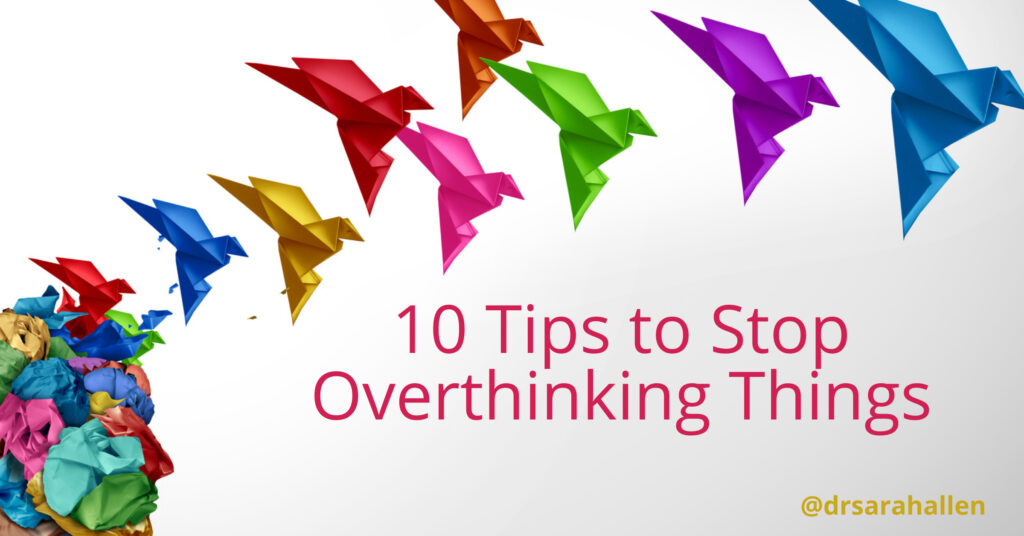
Have you ever found yourself stuck in a cycle of “what if” thoughts? Questions like “What if I fail?” or “What if something goes wrong?” can flood your mind, making it hard to focus on anything else and prevent you from moving forward to complete things that are important to you. “What if” thoughts are a common form of intrusive thinking where your mind begins to envisions worst-case scenarios. These thoughts can revolve around a wide range of topics, are are often about things that you feel are important to your life such as health, relationships, career or personal safety.
While it’s natural to use “what if” thinking to explore possibilities or prepare for different outcomes, for some, it can sometimes spiral into unproductive worry or heightened anxiety and rumination.. These “what if” thoughts are a common part of anxiety. They often lead to endless rumination and worry, making it difficult to find peace.
These thoughts are more than just minor worries. They can grow and lead to significant stress and anxiety. They cause you to overthink every situation, imagining worst-case scenarios in vivid detail. This habit can make simple decisions feel overwhelming and rob you of the joy in everyday moments. Fear of worst-case scenarios becoming reality can prevent people moving forward in their lives and makes people feel very stuck.
In my work with clients, I have seen firsthand how powerful “what if” thoughts can be. Learning to recognize and challenge these thoughts is essential. By understanding their patterns and adopting strategies to manage them, you can reduce their hold on your mind. This approach involves identifying triggers, questioning the thoughts, and focusing on what you can control. Moving past these “what if” cycles can help free your mind, allowing you to focus on what truly matters.
What Are “What If” Thoughts?
“What if” thoughts are hypothetical questions that often fuel anxiety and worry. They start with the phrase “What if” and spiral into negative predictions about the future. Examples include, “What if I fail my exam?” or “What if my presentation goes wrong?” These thoughts can be about almost anything and are usually irrational, focusing on worst-case scenarios.
These thoughts can pop up in various situations, such as before a job interview or while waiting for medical test results. They make you question your abilities, your safety, and even your worth. In my practice, I often ask clients to identify these thoughts by writing them down. This helps make them more aware of the patterns and triggers.
Understanding what “what if” thoughts are is the first step in taking control of them. By recognizing these thought patterns, you can begin to challenge them and reduce their grip on your mind. Awareness opens the door to strategies that can help you manage and diminish these intrusive thoughts.
The Negative Impact of “What If” Thoughts
“What if” thoughts can have a significant negative impact on mental health. They often lead to anxiety and rumination, creating a cycle that’s hard to break. When you constantly worry about possible negative outcomes, it can make you feel stuck and overwhelmed.
These thoughts can lead to various issues:
– Increased Anxiety: The more you focus on negative possibilities, the more anxious you feel. This heightened anxiety can affect both your mental and physical health.
– Rumination: Repeatedly thinking about potential problems can make it hard to concentrate on anything else. This can interfere with daily activities and relationships.
– Avoidance: Constantly worrying about “what if” scenarios can lead to avoiding situations altogether. This can limit your life experiences and opportunities.
Clients frequently share how these thoughts take over their mind and make simple tasks seem daunting. The key to overcoming them is to understand how they work and to have concrete strategies to manage them. Identifying the negative impact is crucial for tackling these thoughts effectively. Once you see how harmful they can be, you are more motivated to change your thinking patterns.
Strategies to Stop “What If” Thoughts
Stopping “what if” thoughts involves several strategies that help break the cycle of anxiety and rumination. Here are a few effective techniques:
1. Identify Triggers: Pay attention to what prompts your “what if” thoughts. Are there specific situations, places, or people that trigger these thoughts? Recognizing these can help you prepare and manage your reactions.
2. Challenge Negative Thoughts: Ask yourself questions like, “What is the worst-case scenario?” and “What are the facts?” Often, the worst-case scenario is not as bad as we imagine. Listing the facts helps ground your thoughts in reality.
3. Focus on Resilience: Look back at how you have dealt with challenges in the past. Remind yourself of your strengths and how you have coped effectively before. This builds confidence in your ability to handle future worries.
4. Control What You Can: Separate your worries into what you can and cannot control. Focus your energy on areas where you have influence, letting go of things beyond your control. This reduces stress and helps you feel more empowered.
5. Positive Affirmations: Replace “what if” thoughts with positive affirmations. For example, instead of thinking, “What if I fail?” tell yourself, “I am prepared and capable.” This shift in mindset can reduce anxiety.
These strategies can help manage and diminish “what if” thoughts. Remember, it’s about progress, not perfection. With practice, you can regain control over your thoughts and reduce anxiety.
How I Help Clients Overcome “What If” Thoughts
In my practice, I work closely with clients to help them overcome “what if” thoughts. This involves a combination of techniques tailored to each individual’s specific needs. Here’s how the process typically works:
1. Initial Assessment: We start by identifying the patterns and triggers of “what if” thoughts. This involves talking about your experiences and pinpointing specific situations that lead to these thoughts. Understanding the root cause is crucial.
2. Cognitive-Behavioral Techniques: I use cognitive-behavioral techniques to help challenge and change negative thought patterns. This includes questioning the validity of the “what if” thoughts and replacing them with more realistic and positive thoughts.
3. Mindfulness and Relaxation: Teaching mindfulness and relaxation techniques, such as deep breathing and meditation, helps clients stay present and reduce anxiety. These practices can be very effective in managing “what if” thoughts.
4. Building Resilience: We work on building self-confidence and resilience by reviewing past successes and strengths. Recognizing your abilities to handle difficult situations can empower you to face future challenges more positively.
5. Regular Follow-ups: Ongoing support and follow-ups are essential. Regular check-ins help monitor progress and make necessary adjustments to the strategies being used. This ensures continuous improvement and support.
Helping clients overcome “what if” thoughts is about providing the right tools and support. By focusing on these areas, I assist clients in reclaiming their peace of mind and reducing anxiety.
In summary, managing “what if” types of thoughts is an important part of anxiety and worrying treatment. These thoughts can trap you in a cycle of worry and fear, but with the right strategies, you can reduce the frequency and impact of these types of thoughts have on you. By recognizing triggers, challenging negative thoughts, focusing on resilience, and controlling what you can, you can diminish the hold these types of intrusive thoughts have on your life.
When I work with someone, I personalize these strategies to fit each client’s unique needs. This tailored approach ensures that you get the support and guidance you need to manage “what if” thoughts effectively as well as the other factors that contribute to and perpetuate your anxiety. It’s about taking small steps towards regaining control and building a healthier mindset. If you’re struggling with “what if” thoughts and feel stuck, please reach out to me to find out more about my anxiety counseling services in the Chicago area and thought out Illinois, Florida and the UK. I am here to help.

If you have any questions, or would like to set up an appointment to work with me and learn how to reduce anxiety, please contact me at 847 791-7722 or on the form below.
If you would like to read more about me and my areas of specialty, please visit Dr. Sarah Allen Bio.
Dr. Allen’s professional license only allows her to work with clients who live in IL & FL & the UK and unfortunately does not allow her to give personalized advice via email to people who are not her clients.
Dr. Allen sees clients in person in her Northbrook, IL office or remotely via video or phone.

What Can I Read That Helps Me While I Am Waiting For My First Appointment With Sarah?
Download this free booklet to gain valuable insights and practical strategies for managing anxiety and worrying.






























